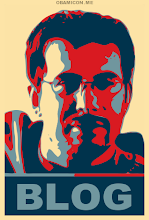By STEVEN TAVARES
The Pioneer Sports Editor
The San Leandro City Council overwhelmingly approved a police services parcel tax be added to the November ballot and increase revenue as citizens grapple with higher incidents of crime and a faltering economy.
The parcel tax, if passed, would add $2.3 million to the city’s dwindling coffers and would apply to both residential and commercial properties.
Under the plan approved by the council, the average single-family dwelling would pay $48 per year for the next three years.
The perception that crime in the city has been on the upswing for much of Mayor Tony Santos first year in office has been a hot-button issue.
Santos caused a firestorm of criticism when he stated in February that crime statistics refuted the fears of many in the community that their quality of the life was suffering.
Many on the council July 28 expressed compassion for the public safety in their support for the measure.
“When I walking door-to-door, people told me they wanted more beat officers,” said Jim Prola, “It’s inexcusable to have six officers for seven beats during the night.”
“We have crime and what are we going to do about it?” said Councilman Michael Gregory, “We have a duty to protect the people.
Councilwoman Joyce Starosciak, who abstained on the vote, said her constituents cautioned against adding a new tax on the heels of a likely economic recession.
An informal polling of her district communicated to her that “times were not good for taxes.”
Starosciak added, “The people are asking for more police, this tax does not add more police.”
San Leandro Police Chief Dale Attarian said the parcel will not add more officers, but will allow the police department to continue to fund the previous hiring of two new officers and add a crime prevention officer,.
Attarian cautioned that if the measure fails, the city would have to revert to deficit spending and possibly begin cutting positions in the department.
The police services parcel tax was not the city’s first attempt this year at raising revenue through taxation.
Earlier in the year, the San Leandro Unified School District initially considered proposing a similar parcel tax, but ultimately decided against its feasibility in the current economic climate.
San Leandro City Manager John Jermanis said the city allowed the school district first crack at exploring a parcel tax with the belief that two tax initiatives would both fail.
“I remain unconvinced that with the downturn in the economy and that the school district concluded their own parcel tax would not carry that we are being hopeful and sanguine and not right-minded,” said Vice Mayor Bill Stephen, who was the lone vote against adopting the ballot measure.
San Leandro resident and former city council candidate, Lou Filipovich, believes that such a tax will trickle down to residents other than property owners.
“Renters are the first ones who will get hurt,” said Filipovich, “Do you think a rental owner will pay this? It’s the renters who will foot the bill.”
In addition to the police parcel tax, the council also approved adding two ballot measures that will seek to secure two sources of revenue generating nearly $5.5 million per year.
The Utility Users’ Tax and 911 Fee are both mired in legal battles over their legality and could possibly be struck down, therefore, denying the city much-needed revenue.
The State Supreme Court may take up the 911 fee case this year after numerous California municipalities including Stockton, Ventura and Union City approved their inclusion to city budgets.
Proponents argue the fee constitutes a tax without the public’s vote.
Both fees would be secured by this measure in the event their current legality is overturned.
Proponents have strongly cautioned both measures would not increase taxes.
Charles Gilcrest, a candidate for the city council’s second district this November, told the council that the key to the measures passing lies in better communicating its value to the public.
“We are not asking them to raise the tax,” said Gilcrest, “As a fee, you could raise it anytime you want. As a tax, you can’t raise it without the voters. This is about voter empowerment.”
Sunday, August 31, 2008
Subscribe to:
Post Comments (Atom)

No comments:
Post a Comment